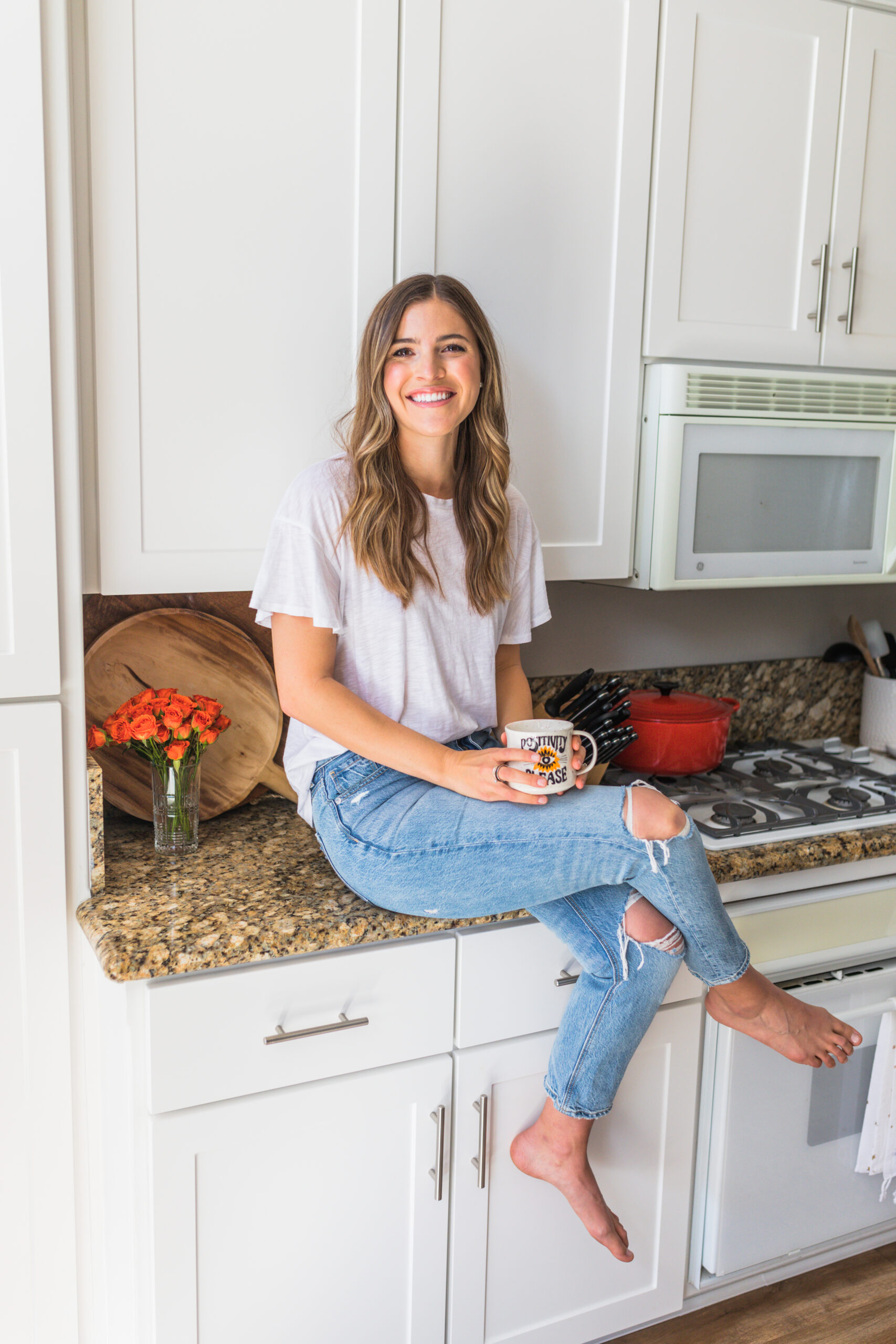


In a world that often feels like it’s moving at lightning speed, it’s easy to forget about nurturing yourself. For women, especially those who juggle multiple roles—whether it’s as a professional, partner, mom, or all of the above—self-care and self nurture often fall to the bottom of the to-do list. But nurturing yourself isn’t just a luxury; it’s a necessity, particularly when it comes to managing anxiety and maintaining overall mental health.
What is self nurturing? It is a mindful and intentional self-care practice characterized by kindness and compassion towards yourself. As a therapist for women, I see firsthand how neglecting self-care can lead to heightened stress, burnout, and a feeling of disconnection from yourself. But here’s the good news: nurturing yourself doesn’t have to be complicated. It’s about tuning into your needs, honoring them, and creating small, intentional moments of care in your everyday life. In this post, we’ll explore why nurturing yourself is so important and offer practical, holistic strategies to incorporate into your routine.

Let’s start with the basics: why is self nurturing so crucial?
Preventing Burnout: Burnout is a term we hear a lot these days, and it’s no wonder. The pressure to excel in every aspect of life can leave us feeling drained and overwhelmed. Nurturing yourself acts as a buffer against burnout by providing your mind and body with the care they need to function optimally. Think of it like recharging your phone—when the battery runs low, everything slows down or stops working altogether. Your body and mind are no different. Regular self-care helps you maintain your “battery” at a healthy level. Additionally, nurturing activities offer significant physical benefits, such as reduced stress levels and improved overall wellbeing.
Reducing Anxiety: Anxiety thrives on neglect. When we ignore our needs, our stress levels rise, and anxiety can quickly spiral out of control. Nurturing yourself involves recognizing your triggers and responding to them with compassion rather than pushing through. By taking the time to care for yourself, you’re actively reducing anxiety by creating a more stable and supportive environment for your mind to thrive.
Building Resilience: Life is full of challenges, and how we respond to them depends largely on our resilience. Nurturing yourself strengthens your ability to bounce back from setbacks by ensuring you have the emotional and physical resources to cope. When you prioritize your well-being, you’re better equipped to handle whatever life throws your way, from everyday stressors to more significant life changes.
Enhancing Relationships: It’s often said that you can’t pour from an empty cup, and this is especially true in relationships. Whether it’s with a partner, children, friends, or colleagues, nurturing yourself ensures that you have the emotional capacity to connect with others meaningfully. When you’re well-rested, less stressed, and emotionally balanced, you’re better able to show up as your best self in your relationships.

Now that we’ve established the importance of nurturing yourself, let’s dive into how to do it. The key is to start small and integrate these practices into your daily life in a way that feels natural and sustainable.
How you start your day sets the tone for everything that follows. Creating a mindful morning routine doesn’t have to be elaborate. It can be as simple as taking a few moments to stretch, enjoy a cup of tea, or practice a few deep breaths to connect with the present moment before diving into the day’s tasks. The goal is to create a peaceful and intentional beginning to your day, rather than rushing into it.
Consider incorporating a short meditation practice into your morning. Even five minutes of mindful breathing can make a significant difference in how you approach the day. Apps like Headspace or Insight Timer offer guided meditations that are perfect for beginners.
Sleep is the foundation of well-being, yet it’s often the first thing we sacrifice when life gets busy. Nurturing yourself means giving your body the rest it needs to function properly by adopting healthy sleep habits. Aim for 7-9 hours of sleep each night and create a bedtime routine that signals to your body that it’s time to wind down.
This could involve turning off screens an hour before bed, reading a book, or practicing gentle yoga stretches. Consistency is key, so try to go to bed and wake up at the same time each day, even on weekends. Quality sleep not only improves your mood and energy levels but also reduces anxiety and helps you manage stress more effectively.
What you put into your body has a direct impact on how you feel, both physically and emotionally, so it’s important to cook healthy foods. Nurturing yourself involves making food choices that support your health and well-being by focusing on healthy foods.
This doesn’t mean following a strict diet or depriving yourself of foods you enjoy. Instead, focus on balance and listening to your body’s needs.
Try to incorporate a variety of whole foods into your diet, including fruits, vegetables, whole grains, and lean proteins. Pay attention to how different foods make you feel. For example, do you notice a spike in anxiety after consuming too much caffeine or sugar? If so, consider moderating your intake and see how your body responds. I have a whole eBook that dives further into this topic if you want to learn more, check it out.
Hydration is also essential. Aim to drink plenty of water throughout the day to keep your body hydrated and functioning optimally. If you find plain water boring, try infusing it with fresh fruit or herbs for a flavorful twist.
Physical self nurturing activities are a powerful way to nurture yourself, as they release endorphins, improve mood, and reduce stress. But this doesn’t mean you have to commit to an intense workout regimen. Exercise should be seen as a self nurturing tool, approached with self-love and joy. The key is to find movement that you enjoy and that fits into your lifestyle.
This could be anything from a daily walk in nature, practicing yoga, dancing in your living room, or joining a local fitness class. The goal is to move your body in a way that feels good and brings you joy. If you’re short on time, even a few minutes of stretching or a quick walk around the block can make a difference.
One of the most powerful ways to nurture yourself is by setting boundaries. This means recognizing your limits and communicating them to others in a way that protects your time, energy, and well-being. Whether it’s at work, in relationships, or with family, boundaries are essential for maintaining a healthy balance.
Start by identifying areas of your life where you feel overwhelmed or depleted. Then, consider what changes you can make to protect your time and energy. This might involve saying no to extra work commitments, setting aside time for yourself each day, or limiting your exposure to people or situations that cause stress.
Remember, setting boundaries isn’t about being selfish; it’s about self-preservation. By protecting your well-being, you’re better able to show up for the people and tasks that truly matter to you.

Mindfulness is the practice of being fully present in the moment, without judgment. It’s a powerful tool for nurturing yourself, as it helps you stay grounded and connected to your inner self, even in the midst of chaos.
There are many ways to cultivate mindfulness, from formal meditation practices to simply paying attention to your breath throughout the day. The key is to find what works for you and make it a regular part of your routine.
One simple practice is to take a “mindful minute” whenever you feel stressed or overwhelmed. Close your eyes, take a deep breath, and bring your attention to the sensations in your body. Notice how you feel without trying to change anything. This practice can help you reset and refocus, allowing you to approach challenges with a clearer mind.
Creativity is a form of self-care that allows you to connect with your inner self and express your emotions in a healthy way. Whether it’s through writing, painting, crafting, or any other creative activity, engaging in creativity can be incredibly therapeutic.
Music lessons are another example of creative activities that contribute to self-care and present-moment awareness, offering personal growth and joy.
You don’t have to be an artist to benefit from creative expression. The goal is not to produce something perfect but to enjoy the process and allow yourself to explore your thoughts and feelings. Consider setting aside time each week to engage in a creative activity that brings you joy, without any pressure or expectations.
Self-compassion is the practice of treating yourself with the same kindness and understanding that you would offer to a friend, often through compassionate self talk. It’s about recognizing that you’re human, that you have flaws, and that it’s okay to make mistakes.
When you’re struggling, instead of being harsh or critical, try speaking to yourself with gentleness and empathy. Remind yourself that you’re doing your best and that it’s okay to ask for help or take a break when needed.
One way to practice self-compassion is to write yourself a kind letter when you’re feeling down. Imagine what you would say to a friend in your situation, and then write those words to yourself. This simple practice can help shift your perspective and remind you that you’re worthy of love and care, just as you are.

Nature has a unique ability to soothe and restore us. Spending time outdoors, whether it’s in a park, by the ocean, or in the mountains, can help you feel more grounded and connected to the world around you.
Try to incorporate time in nature into your routine, even if it’s just a short walk during your lunch break or sitting outside with a cup of tea. Pay attention to the sights, sounds, and smells around you, and allow yourself to fully immerse in the experience.
Nature has a calming effect on the nervous system, making it an excellent way to nurture yourself and reduce anxiety. Plus, spending time outdoors can boost your mood, increase your energy levels, and help you feel more connected to yourself and the world around you.
Nurturing yourself through self-care practices doesn’t mean you have to do it all alone. In fact, seeking support is a vital part of self-care. Whether it’s reaching out to a therapist, talking to a trusted friend, or joining a support group, connecting with others can provide you with the emotional support and guidance you need.
As a holistic anxiety therapist, I encourage my clients to build a strong support network. This might include professionals, but it can also be a community of like-minded individuals who understand and share similar experiences. Sometimes, just knowing that someone else understands what you’re going through can be incredibly healing.
If you’re struggling with anxiety, burnout, or simply feeling overwhelmed, don’t hesitate to seek help. Therapy is a space where you can explore your feelings, gain new perspectives, and develop strategies to better nurture yourself. Remember, asking for help is a sign of strength, not weakness.
In a culture that glorifies busyness, it’s important to intentionally carve out time for rest. Creating rituals of rest can help you recharge and prevent burnout. These rituals don’t have to be elaborate; they can be as simple as taking a bath, enjoying a quiet evening with a book, or spending time in nature.
The key is to make rest a non-negotiable part of your routine. Consider setting aside a specific time each week for a rest ritual. It might be a Sunday afternoon dedicated to relaxation, or a nightly wind-down routine that helps you transition from the busyness of the day to a state of calm.
Rest isn’t just about sleep; it’s about giving your mind and body a break from the constant demands of life. When you prioritize rest, you’re better able to show up fully in other areas of your life.
Gratitude is a powerful practice that offers so many benefits, including shifting your perspective and helping you focus on the positive aspects of your life. It’s also a form of nurturing yourself, as it encourages you to acknowledge and appreciate the good things, even in the midst of challenges.
Consider starting a gratitude journal where you write down three things you’re grateful for each day. They can be big or small—anything from a kind word from a friend to a beautiful sunset. Over time, this practice can help you cultivate a more positive and resilient mindset.
Gratitude also helps counteract negative thought patterns that often accompany anxiety. By focusing on what’s going well, you create space for more positivity and self-compassion in your life.
One of the biggest obstacles to nurturing yourself is the pressure to be perfect. Whether it’s the perfect body, the perfect career, or the perfect life, striving for perfection can leave you feeling constantly inadequate and exhausted.
Embracing imperfection means letting go of unrealistic expectations and allowing yourself to be human. It’s about recognizing that you don’t have to have it all together all the time, and that’s okay.
Start by challenging the perfectionist tendencies in your life. For example, if you’re someone who feels the need to have a spotless home, try letting go of that expectation and focus on what really matters—creating a space that feels comfortable and nurturing, rather than perfect.
By embracing imperfection, you give yourself the freedom to be yourself, without the constant pressure to meet impossible standards. This, in turn, allows you to nurture yourself with more ease and kindness.

Nurturing yourself isn’t a one-time task to check off your list; it’s an ongoing journey of self-discovery and care. It’s about recognizing your worth and making a commitment to prioritize your well-being, no matter how busy or chaotic life gets.
As a holistic anxiety therapist, I’ve seen how transformative it can be when women make the decision to nurture themselves. It’s not always easy, especially in a world that often values productivity over well-being, but it’s one of the most important things you can do for yourself.
Remember, nurturing yourself isn’t selfish—it’s necessary. By taking the time to care for your mind, body, and soul, you’re better able to show up in your life with energy, resilience, and joy. So, start small, be consistent, and most importantly, be kind to yourself on this journey.
If you’re ready to dive deeper into nurturing yourself and want personalized guidance, I’m here to help. As a holistic anxiety therapist in California, I work with women like you to create tailored strategies that support your mental and emotional well-being. Whether you’re struggling with anxiety, burnout, or just need some extra support, let’s work together to help you thrive. Reach out to schedule a free consultation, and let’s start your journey toward a more balanced, nurtured life. You deserve it.


Holistic Therapist, Nutritional Therapy Practitioner and Yoga Instructor in Elk Grove, California.
© Copyright 2024 That’s so well. All Rights Reserved. LICENSED MARRIAGE AND FAMILY THERAPIST #107356. DISCLAIMER. PRIVACY PRACTICES. TERMS AND CONDITIONS. Website by Chloe Creative. 9727 Elk Grove Florin Road, Elk Grove Ca 95624